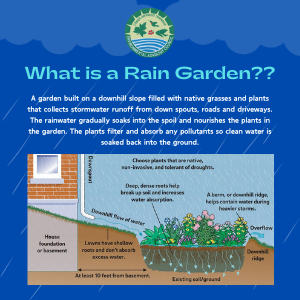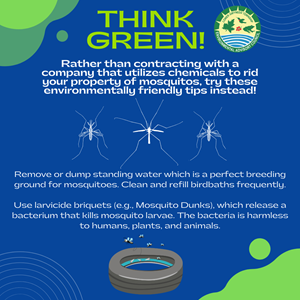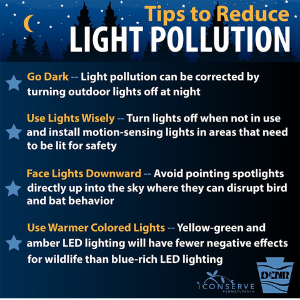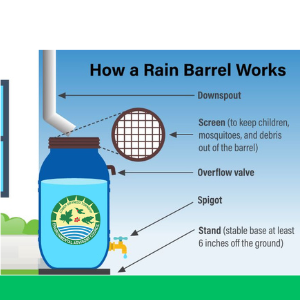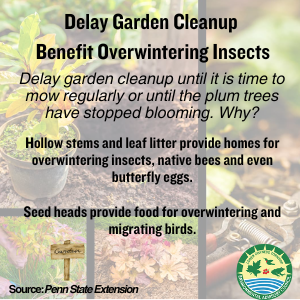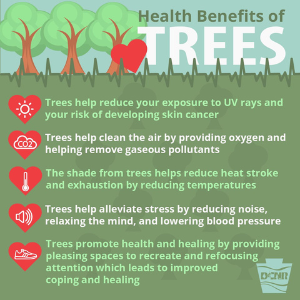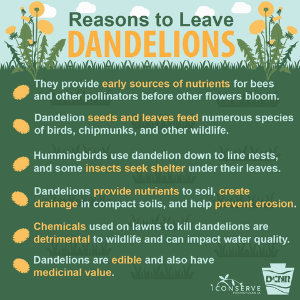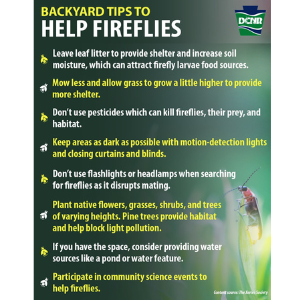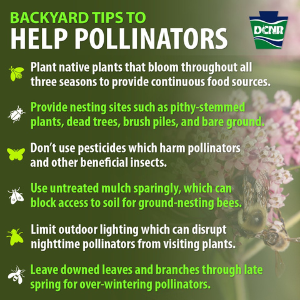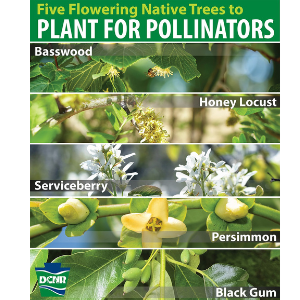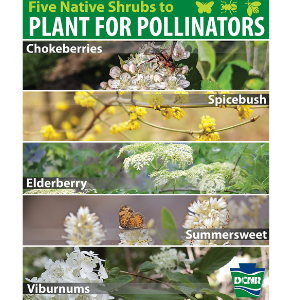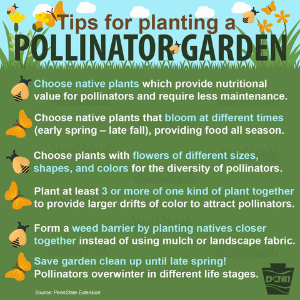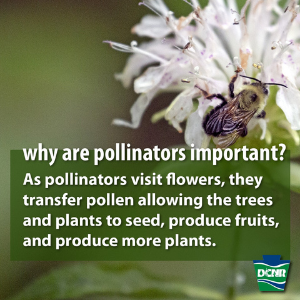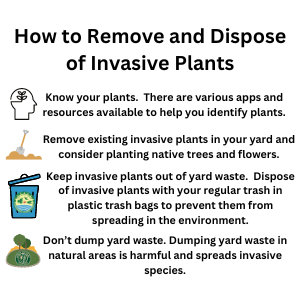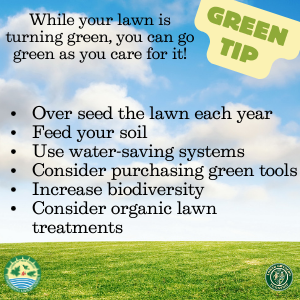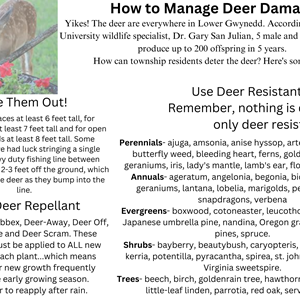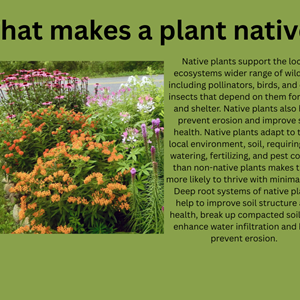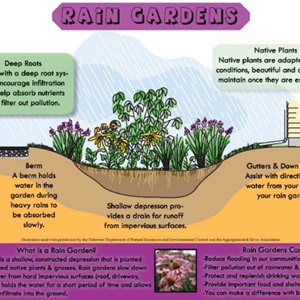Greening Your Property
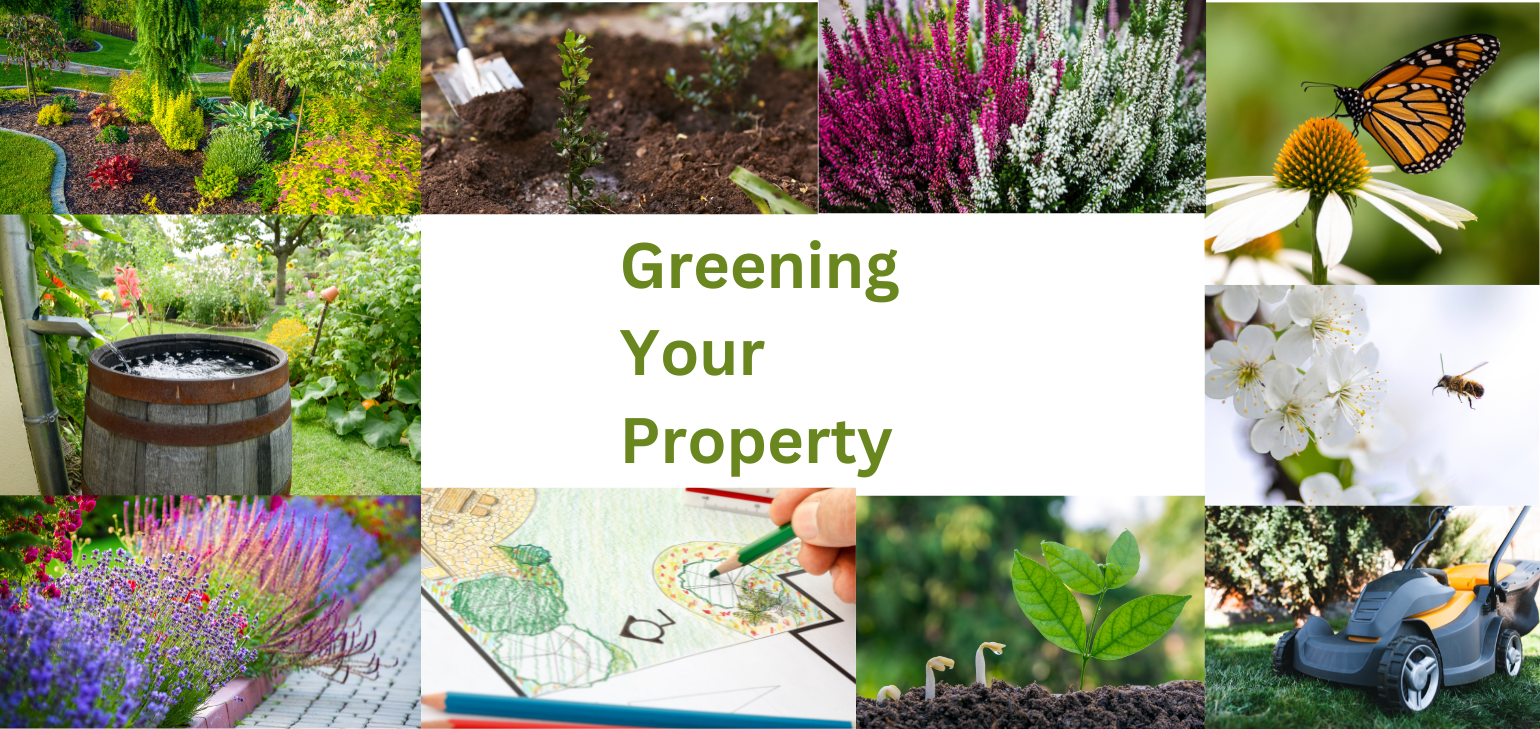
How can you make your yard more environmentally friendly? Plant natives, consider rain barrels or rain gardens.
How can a Rain Garden help my yard? Try these resources:
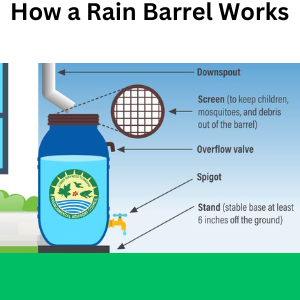
Composting
Compost is a term for organic matter that has decomposed into a form that plants can use. Compost can be used in potting mixes or mixed in with garden soil. It has many benefits for your plants and recycles materials that may otherwise be thrown into landfills. Though composting bins are available for purchase, methods described in this fact sheet rely on materials from your garden, kitchen, and, if needed, a few items from your garden center. To be sure that compost is available for spring planting, start your compost pile in the fall while cleaning up your garden and preparing it for winter. The compost pile goes dormant during the winter, but it will begin to decompose again when air temperatures increase above 50°F. Another pile can also be started in the spring for fall planting. Composting is a procedure that is relatively simple and very rewarding if done correctly.
For more information about how you can compost in your backyard please visit https://extension.psu.edu/home-composting-a-guide-for-home-gardeners
Pollinator Gardens
Why are pollinators important? Without them many fruits and vegetables would not be able to grow, so our whole food chain would eventually collapse. Planting pollinator friendly plants, especially native ones, ensures that these bees, butterflies, bugs, wasps, and other insects have the nectar and pollen they eat to survive, so that we in turn will survive. Here are some tips for planting your own pollinator garden:
- Choose native plants-they share a long evolutionary history with our local pollinators.
- Select a variety of plants- different bloom times provide pollinators with food all season long.
- Avoid modern hybrids- often pollinators can’t locate nectar or pollen through the numerous and showy petals.
- Plant close together and in drifts- this helps pollinators locate the plants.
- Save garden cleanup for the spring- many pollinators overwinter in hollow stems, attached to plants or in leaf litter.
Here are some websites to help you get started:
Plant Native!
Why Native Plants Matter - Restoring native plant habitat is vital to preserving biodiversity. By creating a native plant garden, each patch of habitat becomes part of a collective effort to nurture and sustain the living landscape for birds and other animals. (source: National Audubon Society).
In the next few months, while things are growing and residents are planting in their yards please remember to focus on native plants that you can incorporate into your home gardens, particularly those that can replace non-native invasive species that have been very common landscape plants that many residents likely have in their garden beds around their homes. These non-natives provide very little, if any, benefit to the native fauna of our area, and frequently escape into the wild areas, become invasive and out-competing natives for resources they need to survive and create the biodiversity we need.
If your property is next to or has power lines running through it please visit Peco's website Plant the Right Tree in the Right Place. This is a valuable resource for trees to plant under utility lines and around transformers.
